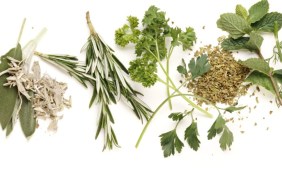In a new study, researchers analyzed the diets of women in rural areas of Gambia, in western Africa; these women experience major dietary changes each year as the area goes through rainy and dry seasons. The rainy season is referred to as “the hungry season” and the dry season is “harvest season,” explains study author Robert Waterland, a nutritional epigeneticist at Baylor College of Medicine in Houston.
The scientists looked at the concentration of nutrients in the blood of 84 pregnant women who conceived during the rainy season and 83 women who conceived at the peak of the dry season, then analyzed the DNA of six specific genes in these women’s infants when they were between two- and 8-months-old. The babies conceived during the rainy season had consistently higher rates of methylation (an important biochemical process that promotes nutrients like folate and vitamins B2 and B6) in their DNA.
It’s relevant to note that the women’s diet wasn’t the only thing that changed. There was more physical activity due to farm labor during the rainy season, so women lost weight and were generally more fit then, and regained weight during the harvest season. Waterland says that these physical changes have an impact on nutrition levels.
Doctors agree that adequate levels of folic acid prior to conception helps prevent defects in embryos. Now this research, published online April 29 in the journal Nature Communications, points toward the need for a consistent cocktail of helpful nutrients — which could come from either diet or from supplements.








